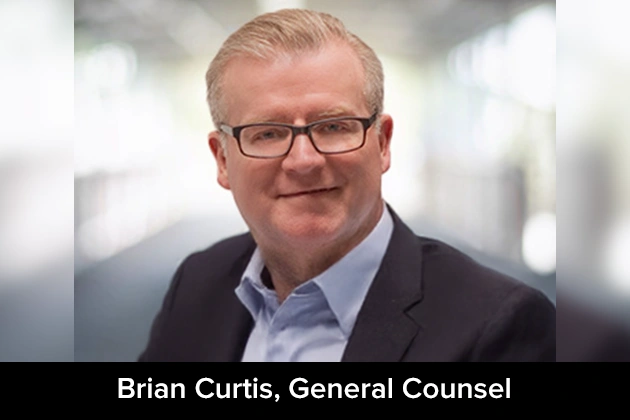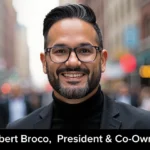Engaged in a wealth of choices to determine the one that was best suited for him to make the most decisive impact and to keep himself driven in his chosen profession, Brian Curtis started his career as a civil litigator. Experiences gained along the way helped him develop skills and sparked his interest in workplace issues. By finding footing in the corporate world, Brian soon recognized his capability to bring positive changes in the workplace. The “Thought Leadership Award 2025” by The CEO Views stands as a testament to his profound expertise in the legal realm.
Rising Through the Ranks
Brian’s early legal career as a civil trial attorney spanned litigating cases ranging from breach of contract claims to inheritance and estate disputes to workplace discrimination issues. However, after finding a career foundation as a litigator in the corporate world, he viewed it as a stepping stone to a broader consulting role that he believed could help him shape a workplace culture that would foster positivity, inclusiveness, and acceptance while aligning with and supporting business goals.
As he continued to advance his career as a legal advisor, he built relationships with business clients, unlocking the keys to success. “My contributions to my corporate clients’ work environments, including the positive changes in viewpoints for their executives and managers, led me to pursue leadership roles within the corporate world rather than focus on litigation or consulting,” said Brian.
Brian’s role as the General Counsel at Colliers Engineering & Design is far more expansive than that of a trial litigator. It involves helping to implement strategies so the firm can attain optimal results in workplace transformation while achieving its business and financial objectives.
Professional Acumen
At Colliers Engineering & Design, a multi-discipline engineering and architectural design firm, Brian leads the Legal Group. He joined Colliers (then known as Maser Consulting) in 2018 as its first General Counsel, having been tasked with creating its in-house legal department. Since then, he has developed the Legal Group into a formidable team of lawyers who work together to help move the firm forward. He is also a Principal Shareholder in the firm and a standing member of its Executive Committee leadership team, as well as Vice President and Corporate Secretary.
Additionally, over the course of his legal career, he has served as an Attorney-Trustee for the Supreme Court of New Jersey and, since 2008, has also been a guest lecturer for the NJ State Bar Association and the National Business Institute, sharing insights on topics including Corporate Governance, Business Immigration, Workplace Investigations, Human Resources Best Practices, NJ Cannabis Law, Healthcare Reform, and Compliance.
Embodying Thought Leadership
In his personal view, thought leadership is not really about “leadership” in the general sense; it is more about being comfortable in advancing an idea and inspiring others to act, collaborate, and accomplish. Brian believes curiosity is integral to the role of a thought leader, and he confidently embraces it to navigate the ever-changing legal landscape.
In terms of embodying thought leadership in his legal work, Brian has kept collaboration as a hallmark of how he has managed and trained legal teams. As a thought leader, he has long strived to instill the view that “collaboration is the key to success” in the teamwork environment.
Thought Leadership: Driving Innovation and Trends
The legal industry, from a corporate perspective, is oftentimes viewed as a monolith—slow-moving and resistant to change. However, Brian’s experience is somewhat different. Thought leadership can drive innovation and industry trends so long as that industry is willing to adapt and grow. Throughout his legal career, Brian has interacted with many lawyers who were agile and adept, open to change, and eager to collaborate.
The rise of artificial intelligence (AI) in the legal workplace is a prime example of thought leadership driving innovation and collaboration. Just a few years ago, lawyers would not have relied on AI. Brian himself was initially quite skeptical about its use and reliance in the legal world. But soon, he recognized the transformative power of AI to foster efficiency and expertise across the legal industry.
Adding Value
Working together is a Core Value at Colliers Engineering & Design. The firm has implemented a range of policies and processes to enhance strategic value. Going beyond traditional legal functions, some of these policies increase efficiency, ease bureaucracy, and enhance workplace culture. By far, one of the most successfully implemented strategies across the firm is what Brian refers to as the “Business Partner Model.”
This transformative model is the brainchild of the firm’s CEO and other executives. It directly connects the Operations teams (the technical divisions that deliver professional services to clients) with the Corporate Services teams (Legal, HR, IT, Finance, etc.) to facilitate more seamless interactions across the company. Adding value to conventional legal functions, this strategic model fosters a culture of being solutions-oriented in one’s approach to managing diverse tasks and helping achieve goals.
Manifesting Oneself & Advising Leaders
The role of a General Counsel is ever-changing, and in the next decade, Brian sees it as the bridge between the legal industry overall and the corporate sector—particularly with the advent of AI and its ongoing development. AI will continue to transform, accelerate, and improve efficiencies, but guardrails need to be developed along the way to ensure its uses and capabilities are well-managed.
He advises aspiring legal leaders to engage in the corporate world with intention, keeping themselves open to new ideas, advancements, and experiences.
Envisioning the Future
Brian envisions Colliers Engineering & Design to lead the industry with proven expertise and innovative, sustainable solutions through an exceptional work culture and client experience. The firm’s Core Values—doing what is right, working together, being curious, seeking excellence, adapting and growing, and being safe and well—serve as the foundation of this vision.
“My sense of “thought leadership” is grounded in one’s own curiosity and desire to learn and understand the world we experience around ourselves.”










